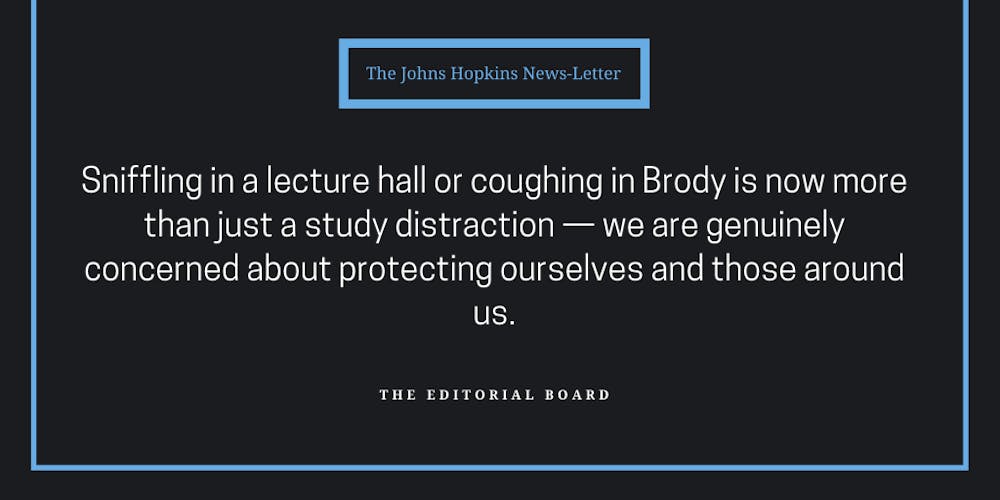As the winter season approaches and people increasingly opt to stay indoors, flu season has made its presence known on campus. With friends, fellow students, and even professors falling ill, it seems that everyone has been feeling under the weather. In a normal year, this might not be a cause for particular alarm. In a new normal year, however, this is concerning.
COVID-19 has created a culture of hypersensitivity around sickness. Sniffling in a lecture hall or coughing in Brody is now more than just a study distraction — we are genuinely concerned about protecting ourselves and those around us. While we’re well versed in social distancing, masking up and isolating, we want more clarity from the University regarding some of these principles in practice.
To track COVID-19 symptoms among students, the University relies on the Prodensity app. Prodensity’s health check, though, consists of just two questions: whether a student lives with someone who tested positive, and whether they began experiencing any of a broad variety of symptoms in the past few days.
It is impossible for two simple questions on Prodensity to account for various cases and situations. Students may display COVID-19-like symptoms due to a plethora of other causes, such as asthma, allergies, digestive or hormonal problems. Without comprehensive questions, double-tapping “no” on the health check becomes habit. This may cause students to fill out their Prodensity health checks inaccurately.
However, the onus isn’t solely on students to be COVID-19 safe. The University must create clear and consistent policies.
We know, for instance, that we are supposed to isolate and call the Johns Hopkins COVID-19 Call Center for screening when we’re symptomatic. Without a symptomatic testing site at the Peabody Institute, however, these students are forced to break isolation in order to get tested. Taking public transportation to another campus will only increase the amount of potential exposure.
With respect to event capacities, the University continues to contradict itself. Last weekend, two O(ctober)-shows took place at Shriver Hall to showcase dance and A Cappella groups on campus. For each show, over 400 people, excluding performers, registered to attend on CampusGroups. In stark contrast, at Peabody, a Wind Ensemble concert in Friedberg Hall held on the same night as the A Cappella O-show prohibited a live audience and was only streamed online.
Additionally, certain large classes have begun administering exams in-person, even though the capacity cap for instruction and club meetings is still at 50 people indoors.
As undergraduates, we are not the most qualified to dictate the best public health measures. However, we are confused by the inconsistencies we are seeing. How are these capacities determined, and why do they differ?
We want to be confident in the University’s decisions for our health and wellbeing, but this becomes difficult when its guidelines are inconsistent and little reasoning is provided. We call on the University to be more transparent in how it makes these decisions in order to calm students' nerves during an already stressful time.
Despite the contradictions that exist within the University’s protocols, we appreciate the administration asking professors to continue being flexible and accommodating by providing virtual alternatives to in-person classes. Students should feel no pressure to come to class if their symptoms make them a potential risk to others.
To minimize the chances of getting sick and missing class, we implore students to adhere to the University’s influenza vaccine mandate. You can get your flu shot for free at on-campus clinics or at any Walgreens with a voucher, among other locations.
Alongside getting vaccinated, we must continue complying with the public health guidelines in place. This includes not tampering with dining hall seating, maintaining social distancing indoors when maskless, and, if you are coughing (as a result of COVID-19 or frat flu), isolating yourself.
We’re still living through a pandemic, and it’s on all of us to do our part.





